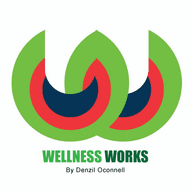Speaking the Truth and Speaking Mindfully along with loving and kindness in our everyday lives is one of the biggest challenges of the modern times.
Build Awareness – Notice words that come out of the mouth
To practice honest speech is to change your approach to speaking. The first step is to become aware or conscious of the words coming out of your mouth. It might seem you are observing yourself – noticing what you speak. Notice even the tone in which you speak. Observe how people react to what you have spoken.
Start – by observing how you feel emotionally after having said something. Do your words create an emotional baggage?
Secondly, start self questioning. Why do you say what you do? What emotion or feeling makes you say the words that come out of your mouth? Is there an emotional hurt or anger that makes those sarcastic remarks come out. The words that you speak – how do they affect people.
“Being honest may not get you a lot of friends, but it’ll always get you the right ones.” – John Lennon
Understand the Inner Chatter:
Once you understand the inner chatter that you are filling with speech patterns of – speaking rudely, sarcastically or hurtfully – you start becoming aware. As you start owing the emotional issues you have and deal with them as an essential progress you will lay the foundation of your happiness. If you try and speak – only because that is what the right thing to do, it becomes superficial – somewhere along the way your pain will trickle out of your words.
Therefore, you need to either work on yourself emotionally or through some kind of therapy like energy healing to heal your innermost hurt and anger. Chanting ‘OM’, ‘meditation’ or repeating a ‘mantra’ in your mind gives you a renewed inner energy that gives your words more power and cleanses them.
The more we energize ourselves the more we are in sync with the words we use. We start using our words more carefully.
To understand our inner turmoil – before we start speaking the truth – in the long run, it is more IMPORTANT to understand the reasons for not doing so.
“As I began to love myself, I found anguish and emotional suffering are only warning signs that I was living against my own truth. Today, I know this is authenticity.” Charles Chaplin
Let us start by discussing ‘Why don’t we speak the truth?’
5 Main Reasons for ‘NOT’ speaking the truth:
Fear of shattering the Image:
It is Fear of shattering the image created in front of others by speaking the truth. It stems from low self-esteem and a need to paint a rosy picture. Your inner critic doesn’t accept you, love you or adore you the way you are. Therefore, you end up resorting to untruthfulness. You want to project through the words a painted picture of yourself – that is often not the truth.
One could also harbor apprehensions about own self-esteem, where you are unsure of your ideas or opinions. As a child, if you have been criticized whenever you tried to open up and speak, you end up feeling lack of self-confidence. You carry those beliefs or low self-esteem in your teen or adult life as a habit or baggage. As a result, you agree to others without speaking out your mind or not being able to express natural spontaneity.

Need to be Praised and Difficulty in saying ‘NO’:
You may need to attract attention or be praised. This stems from insecurity or having an identity crisis. You become the ‘Agony Aunt’ or the ‘Go To’ person taking on tasks more than you can handle. As a result , you also may end up taking on work, others are meant to do. Your want to be praised – makes you take tasks unwillingly – by not speaking the truth about your true feelings and emotions.
“Silence the angry man with love. Silence the ill-natured man with kindness. Silence the miser with generosity. Silence the liar with truth.” – Gautama Buddha
As a result, you often have a plate topping with responsibilities you reluctantly handle – yet scared to voice. The fear is mainly loosing that limelight, loosing that position, loosing the attention that project or task brings you, or loosing that relation.
Difficulty in saying ‘No’ since you want to please others. The word ‘NO’ may signify ‘‘shame’ or ‘guilt’ or a feeling that you are ‘letting others down’ in case you put yourself first! I am not saying here that you shed compassion. What you end up doing is you start resenting yourself, because your inner soul is continuously at a tug of war with your fear or insecurities about yourself. The fear of dis-pleasing others gnaws at you every time you are unable to say ‘No’.
However, ‘saying no’ and ‘speaking the truth’ builds trust and respect in others eyes.
“Three things cannot be long hidden: The Sun, The Moon, and The Truth.”
Gautam Buddha

Finding Justification to overcome guilt:
We lie because we justify that the untruthful words we have fabricated are the actual truth. We end up lying again and again because to cover up one big lie – you may have to be dishonest repeatedly. It’s amazing how the human brain tends to justify being dishonest. I have seen entire families or communities lie, just because they justify that being untruthful is apt because they are standing for a cause, or adhering to certain social stigmas. You may have also heard people say – “There’s nothing wrong in being dishonest if it doesn’t hurt anyone.”

Fear of confrontations or conflict:
Fear of confrontations or conflict could be the reason for being dishonest. It happens between spouses, father-son, mother in law- daughter in law or employer-employee. The underlying emotion is fear of having to face the consequences, or fear of being ridiculed or rejected, or the fear of the other parties hate or anger. This fear soon becomes a habit and ruins the foundation of relationships.
The test is to stand tall with integrity and strength by practicing to be courageous and honest.

Intentionally hurting Some one:
One could be dishonest due to the intention of hurting someone. This could be because of bad habits, rage, hurt bottled up inside one’s self. One ends up hurting others by being dishonest and starts feeling even.
Always remember what Will Bowen said ;
“Hurt people hurt people.”
“We are not being judgmental by separating ourselves from such people. But we should do so with compassion. Compassion is defined as a “keen awareness of the suffering of another coupled with a desire to see it relieved.” People hurt others as a result of their own inner strife and pain. Avoid the reactive response of believing they are bad…. They aren’t bad; they are damaged and they deserve compassion. Note that compassion is an internal process, an understanding of the painful and troubled road trod by another. It is not trying to change or fix that person.”
Speaking Mindfully
Treat people who hurt you with loving kindness and see how their attitude changes over the period of time. If you are the one who is hurting people by being dishonest – ask yourself what is it that is making you feel hurt and therefore a justification to hurt others.
You will face circumstances or relationships where its best to keep thoughts or incidences to yourself. However, practice thoughtfulness and compassion while speaking the truth. Speak mindfully and speak honestly when you think the time is right.

“Never ruin an apology with an excuse.” Benjamin Franklin
Breaking bad news in a sensitive manner is one such example of being mindful while speaking the truth.
However, in other circumstances, your suggestion of truth could backfire even if you have good intentions. You will experience this when the other person is under the traps of feelings like anxiety or anger originating from fear.
One of the most important truthful speech everyone should practice is to confess or apologize when you say something that hurts others.
Understand the meaning of Speaking the Truth:
“Truth is most often used to mean being in accord with fact or reality, or fidelity to an original or standard. Truth is also sometimes defined in modern contexts as an idea of “truth to self”, or authenticity.”
Some synonyms of truth are veracity, truthfulness, verity, candor, sincerity, honesty, genuineness, facts, certainty, the fact of the matter, what actually or really happened, the case, in accordance with fact of reality.
“There is nothing so delightful as the hearing, or the speaking of truth. For this reason, there is no conversation so agreeable as that of the man of integrity, who hears without any intention to betray, and speaks without any intention to deceive.” – Plato
You often mistake truth for fact and vice versa. Just so that you have clarity – I have explained the difference between fact and truth in the simplest manner:
A Fact cannot be questioned or reasoned out because it is logical. However, truth is entirely based on the perspective of the person speaking it and past experience.
To understand the Dictionary meaning of “Truth” Click here
Is dishonesty a personality disorder?
Watch out for of any personality disorders people around you may be facing where one refrains from speaking the truth. The disorders are of three kinds – compulsive liars, pathological liars, sociopath, and the occasional liars.
People who suffer from the above-mentioned disorders certainly require medical help.
You must have often met occasional liars who speak “white lies” and are so minuscule that its best to let it go.

“We can control people if we tell half-truth; if we shade what’s true, but if we tell the truth, then our inside is on the outside. There is nothing hidden inside. For most human beings, to have their inside exposed on the outside brings up incredible fear.” – Adyashanti
We learn to withdraw from speaking the truth early in life – How?
At an early age, we learn ‘not’ to speak the truth as we felt unsafe to express our voice. Parents, teachers or elders may have scolded you resulting in you associating pain and hurt with speaking the truth. You start suppressing yourself and take the less painful path.
Your parents or elders may pass on this behavior pattern to you carrying it forward from their childhood experiences. It’s not their fault! They simply want you to relive the experience of not being heard as kids as a natural way of growing up. Thus, they pass on their habits, beliefs, and fears to you. They did what they think is right for you.
As a result, you start withdrawing yourself. You don’t think it necessary to speak honestly. Saving yourself from painful and unpleasant circumstances becomes your second nature. This feeling of living in a protected shell and feeling scared of speaking out permeates when you become an adult.
“Only truth can put the past to rest.” Nelson Mandela

Give our POWER to Others
These behaviors, beliefs, and habits are due to one giving one’s power away to others. When you were kids, you got bulldozed to give the power to your parents and they controlled you. You just trotted behind them and followed whatever they said or did. You refrained from speaking the truth and continue doing so as an adult. With the result – you allow others to take you for granted by not respecting your space, your preferences and your time.
You become empowered only when you stop giving your power away by practicing restraint, speaking the truth, drawing a line so that your past doesn’t rule your current life.
“Believe nothing, no matter where you read, or who has said it, not even if I have said it, unless it agrees with your own reason and your own common sense.”
Gautama Buddha

Methods to practice – Speaking the truth Mindfully
Importance of truth and honesty in life is like a medicine to the hurt soul. It is a pain to bear the burden of lying. Once you start mindful honest speech you will realize how ‘free’ you feel.
You will no longer ask yourself:
How can I be more mindful with words?
You will start thinking less about situations and not get worked up – as you will clear your heart and say what you wanted to say.
This is Mindful speaking
Practicing honesty in the present moment creates a life of ‘no regrets’ in the future. Speaking the truth out of love – and NOT fear is the key to mindful speaking. It may be a little difficult in the beginning to learn how to be firm and speak the truth. Start by observing people who you look upto and see how they smoothly say what in in their heart without any fear or hesitation – while at the same time do not hurt others feelings.
Expressing how you feel in an assertive and kind way is essential, and others will respect you more for doing so.
“Teach the tripple truth to all: A generous heart, kind speech, and a life of service and compassion are the things which renew humanity.” – Gautama Buddha
Example 1: Talking to people asking for your advice
When you are communicating with someone your patience may run out. Or, it could be you are talking to someone close to you who needs your guidance or help. You have the tendency to pour your heart out because you care for the other persons well being. sometimes you may speak without being mindful. To cultivate the habit of speaking the truth yet being sensitive to the receiver makes you excel in interpersonal relationships.
In such situations pause for a few moments and feel love and compassion by asking yourself:
- What I am going to speak is it going to be a kind?
- Is it necessary to speak what I have in mind?
- Will my speech bring any difference to their life?
- What I am going to say is it the truth?

Speaking from your heart mindfully is not an easy habit to learn and practice. The ruling emotion people have is ‘fear’ therefore what you may want to say is not what others want to hear. If you refrain from speaking the truth due to the others – you will feel emotionally drained. Speaking your heart out is empowering.
Maybe there is something in your heart that you are passionate about and have wanted to speak the truth with a close person for a very long time. Same as you would like to listen to the truth – in the same manner, the other person may not want you to hold yourself back. You have been asked for advice and you have been bottling that up in you. Speak mindfully with love and kindness and tell your close one what you think is your advice. You will feel lighter – certainly!
“The thing you fear most has no power. Your fear of it is what has the power. Facing the truth will really set you free.” – Oprah Winfrey
Example 2: Speaking out of turn where words Gush out
We often find ourselves in a situation where words just gush out of our mouth and we speak without thinking. It could be a circumstance to make you angry or in the middle of an argument where you just want to speak without thinking. For those of you who are learning to speak mindfully – remember it is important to gauge what you are going to say without editing it. Speak what is truthful and important.

We are surrounded by what we are and get exactly what we give out in kindness and love in speech. Therefore, if you speak with kindness others who love you will reciprocate. If you see an argument coming up – go into a short span of silence. Think and gauge if what you are about to say is something you ‘really’ need to say.
Anger Management How to control your Anger
Practicing silence more often makes sure you speak only what you want to say.
“If we think before we speak and if we step back and give our words space to resonate, we create a safe space for others to be with us and open up more.”
Example 3: Speaking in agreement with others
Another circumstance you often find yourselves in – when you start agreeing to others just to keep them happy even when the other person is gossiping or just spreading negativity. By allowing others to speak in this manner we are letting our energy go down and we feel resentful or heavy after we meet this kind of person.
It is easy to join in the gossip or negativity, however, end of the day, it is you who people will listen to if you chose to cut through the negativity. Make sure to speak in a manner so that everyone listens and respects you.

Understand that you need not be the victim. You are an adult and are responsible for allowing negativity in your life to happen. By learning the art of speaking the truth you will be able to live with others happily since you assert your limits. It also helps you to make a choice of who would you like to be in your life and which relationships are best to let go of.
“A lot of problems would disappear in the world if we talked with each other, rather than about each other.”
Example 4: Learning to say ‘NO’ and speak your mind
What is your learning?

It is important to unlearn from being meek and learn to grow as an adult who takes personal responsibility. You shift from being reactive to someone who takes conscious action. Your learning is to listen to your inner voice – create those boundaries and learn to say that “No” in a sensitive manner. Speak the truth by letting others enter your space as much as you want to.
It could be saying No to your wife when you don’t want to eat dinner, or it could be saying No to your colleague who wants you to help him with his project. It could be voicing that spontaneous idea in a meeting by expressing it and feeling the adrenalin rush at being noticed as a creative person.
Value who you are and about what your ideas are by being assertive. You will need a lot of courage to grow as an individual.
“It’s easy to stand in the crowd, but it takes courage to stand alone.” Mahatma Gandhi
Example 5: Speaking without FEAR with the help of Courage
As a habit, you are used to living in a safe shell you create around yourself. Fear governs your thoughts and as soon as you think about speaking the truth your inner critic kicks in. Fear is your protection mantra and keeps you away from unchartered territories.

You have grown up and are an adult – therefore you may shed the fear and use the power of speech. Understand that the voices from the past like these may haunt you: “They always make fun.” ” You will end up doing it in the wrong manner.” “You are bound to fail.” “You are not good enough.” Remember, these are voices that were spoken in the past and are just echoing in your head. These thoughts have no place in your adult life.
“Courage is the willingness to speak the truth about what you see and own what you say.” – Seth
Watch Deepika Padukone speak her Truth and Heart out in an exclusive chat with us at Wellnessworks
http://wordpress-334546-1028402.cloudwaysapps.com/bollywood-motivational-speech-by-deepika-padukone/
Now that we know the REASONS why we do not speak the truth and the practices that make speaking truthfully easier for you, let us look at some frequently asked questions:
WHY should we speak the truth?
What are the advantages or importance of speaking the truth?
Importance of truth and honesty in life?
“The difficulty, my friends, is not in avoiding death, but in avoiding unrighteousness; for that runs faster than death.” – Plato









15 Responses
Read it. Beautifully penned. Cohesion of ideas n the doable.
Read it. Beautifully penned. Cohesion of ideas n the doable. Congratulations.
Very nicely written, the way it’s communicated makes one realize the importance of mindful speaking.. really brilliant..
Regards